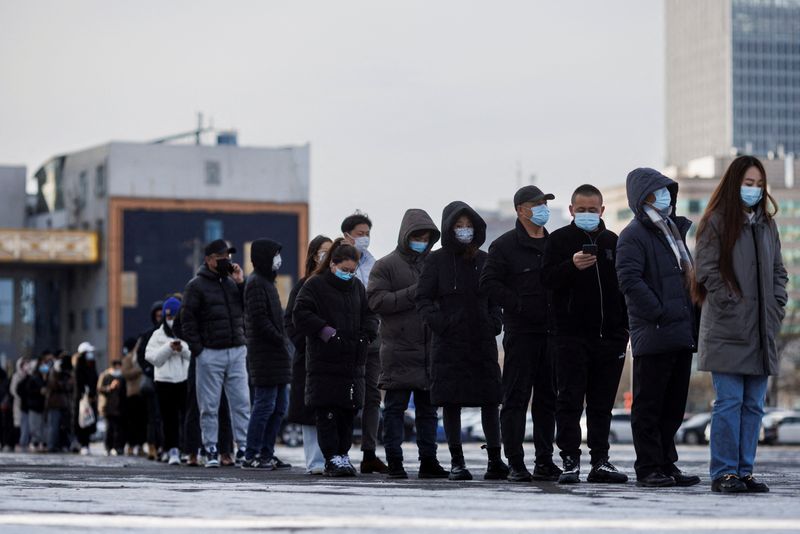BEIJING (Reuters) – Beijing reported on Wednesday the highest number of daily local COVID-19 cases since late January, less than two weeks before the opening of China’s annual parliamentary meeting in the capital on March 5.
The city of Beijing detected 10 domestically transmitted COVID-19 cases with confirmed symptoms for Tuesday, data from the National Health Commission (NHC) showed on Wednesday. That marks the highest daily count for Beijing since Jan. 29.
Despite the tiny case load by global standard, the city, in line with China’s “dynamic-zero” strategy against the virus, has sealed up some buildings where cases and their close contacts lived. It has advised residents living in districts that have reported local infections to not to leave Beijing unnecessarily, and recommended large conferences and events be held online.
The new cases were detected in six of Beijing’s 16 districts. Its special economy and technology development zone also reported sporadic infections.
Including new infections in Beijing, China reported a total of 90 locally transmitted cases with confirmed symptoms for Feb. 22, compared with 59 a day earlier, according to the NHC.
Another nine province-level administrative divisions, including the northern region of Inner Mongolia and northeastern province of Liaoning, reported local infections.
There were no new deaths, leaving the death toll at 4,636.
As of Feb. 22, mainland China had 108,194 cases with confirmed symptoms, including both local ones and those arriving from abroad, since the epidemic emerged in late 2019. China counts asymptomatic infections separately.
(Reporting by Roxanne Liu, Stella Qiu, Albee Zhang and Ryan Woo; Editing by Tom Hogue and Lincoln Feast.)



















